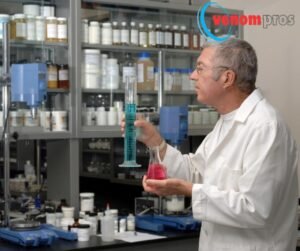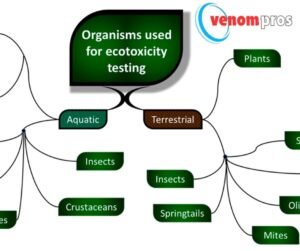
Clinical Toxicologist and Poison Control Specialist: A Crucial Role in Emergency Medicine
In the high-stakes world of emergency medicine, the role of a Clinical Toxicologist and Poison Control Specialist is both challenging and indispensable. These professionals are at the forefront of managing and mitigating the effects of toxic exposures and poisoning incidents. Their expertise is crucial for diagnosing, treating, and preventing toxicological emergencies, making them essential players in safeguarding public health. This article delves into the responsibilities, skills, and impact of Clinical Toxicologists and Poison Control Specialists, shedding light on their vital contributions to medical care in Clinical Toxicologist.
Understanding the Role
A Clinical Toxicologist is a physician or scientist with specialized training in the study of poisons and toxic substances. They work in clinical settings such as hospitals, poison control centres, and emergency departments to diagnose and manage cases of poisoning and toxic exposure. A Poison Control Specialist, often working alongside a Clinical Toxicologist, provides critical information and guidance to healthcare professionals and the.
Key Responsibilities
1. Diagnosing and Managing Toxic Exposures
The primary responsibility of a Clinical Toxicologist is to assess and treat patients who have been exposed to toxic substances. This involves a detailed evaluation of the patient’s symptoms, history of exposure, and laboratory tests to identify the type and level of toxin involved. Based on this assessment, the toxicologist develops a treatment plan, which may include administering antidotes, providing supportive care, and coordinating with other medical professionals in Clinical Toxicologist.
For example, in cases of acetaminophen overdose, a common scenario in emergency medicine, a Clinical Toxicologist might prescribe N-acetylcysteine to counteract the toxic effects. In cases of exposure to heavy metals like lead or mercury, chelation therapy might be employed to remove the toxins from the body.
2. Providing Expert Consultation
Clinical Toxicologists also serve as consultants for other healthcare providers, offering expert advice on complex cases involving toxic exposures. They might provide guidance on the interpretation of toxicological tests, recommend appropriate treatments, and assist in managing the complications that can arise from poisoning incidents. Their expertise is particularly valuable in cases where the diagnosis is uncertain or the exposure involves multiple substances.
3. Developing and Implementing Protocols
In addition to individual patient care, Clinical Toxicologists play a role in developing and implementing protocols for managing toxic exposures within healthcare settings. This includes creating guidelines for the use of antidotes, setting up emergency response procedures, and ensuring that medical staff are trained in handling poisoning cases. By standardizing practices and ensuring preparedness, they help to improve the efficiency and effectiveness of emergency care.
4. Educating and Training
Education is a critical component of the role. Clinical Toxicologists and Poison Control Specialists provide training for medical professionals, first responders, and the public on recognizing and managing poisoning and toxic exposure. They often conduct workshops, seminars, and training sessions to enhance awareness and improve response capabilities. For example, they might train emergency room staff on the latest advancements in toxicology and treatment protocols.
Essential Skills and Qualifications
To excel in the role of a Clinical Toxicologist and Poison Control Specialist, a combination of specialized knowledge and skills is required:
1. Advanced Knowledge of Toxicology
A deep understanding of toxicological principles, including the mechanisms of toxicity, dose-response relationships, and the pharmacokinetics of various substances, is essential. This expertise enables toxicologists to accurately diagnose and treat poisoning cases in Clinical Toxicologist.
2. Medical Training and Expertise
Clinical Toxicologists typically have a medical degree (MD or DO) and specialized training in toxicology. This medical background provides them with the skills needed to assess and manage complex medical conditions associated with toxic exposures.
3. Analytical and Problem-Solving Skills
Strong analytical skills are crucial for interpreting complex test results and identifying the type and extent of toxic exposure. Problem-solving abilities help in developing effective treatment plans and managing unexpected complications.
4. Communication and Interpersonal Skills
Clinical Toxicologists must be able to convey complex information clearly and work collaboratively with multidisciplinary teams.
5. Ability to Stay Current with Advancements
Clinical Toxicologists must stay current with the latest research, treatment modalities, and guidelines to provide the best possible care.
The Impact on Public Health
The work of Clinical Toxicologists and Poison Control Specialists has a profound impact on public health. By providing expert care and guidance in poisoning cases, they help to reduce the morbidity and mortality associated with toxic exposures. Their efforts in education and training enhance community awareness and preparedness, leading to more effective responses in emergency situations.
Conclusion
Clinical Toxicologists and Poison Control Specialists play a critical role in managing toxicological emergencies and safeguarding public health. Their expertise in diagnosing and treating poisoning cases, providing consultation, developing protocols, and conducting research makes them indispensable in the field of emergency medicine. By combining advanced scientific knowledge with practical medical skills, they ensure that patients receive the best possible care in the face of toxic exposures. As the field of toxicology continues to evolve, the contributions of these professionals will remain vital in addressing the challenges and advancing the understanding of toxic substances.
Also read this;>Discovering the Venom in Edible Fruits.
Also read this;>Nations League Clash Sets the Stage for a Thrilling Season







